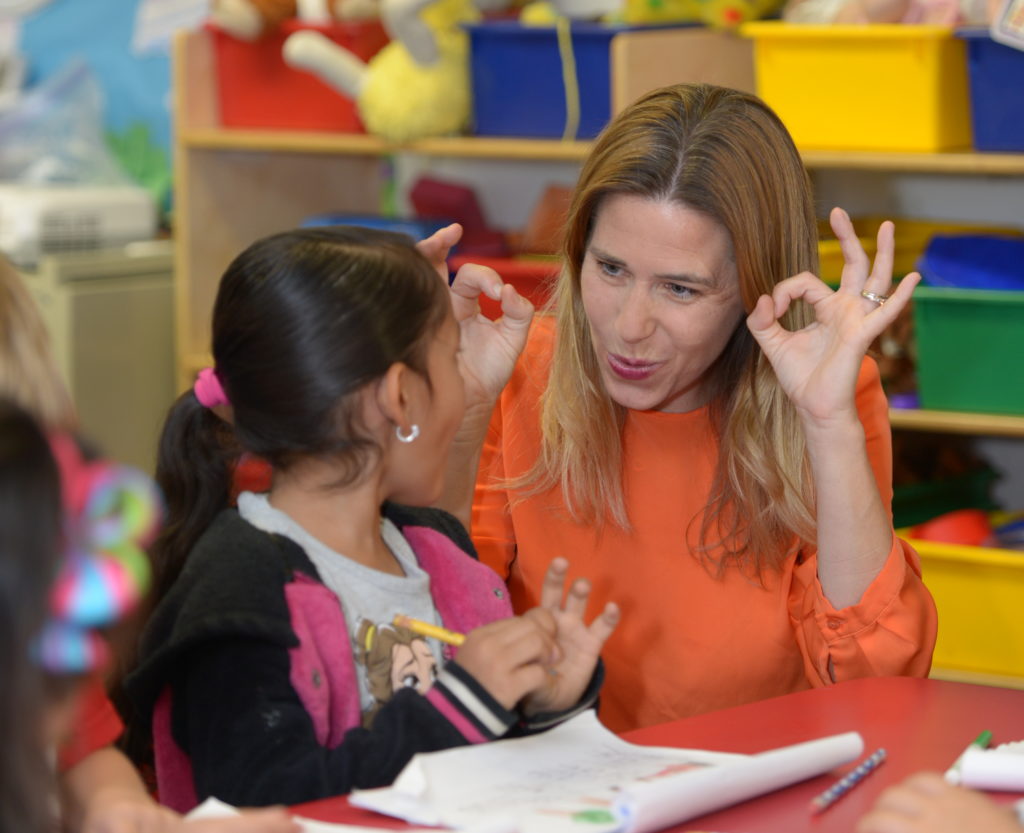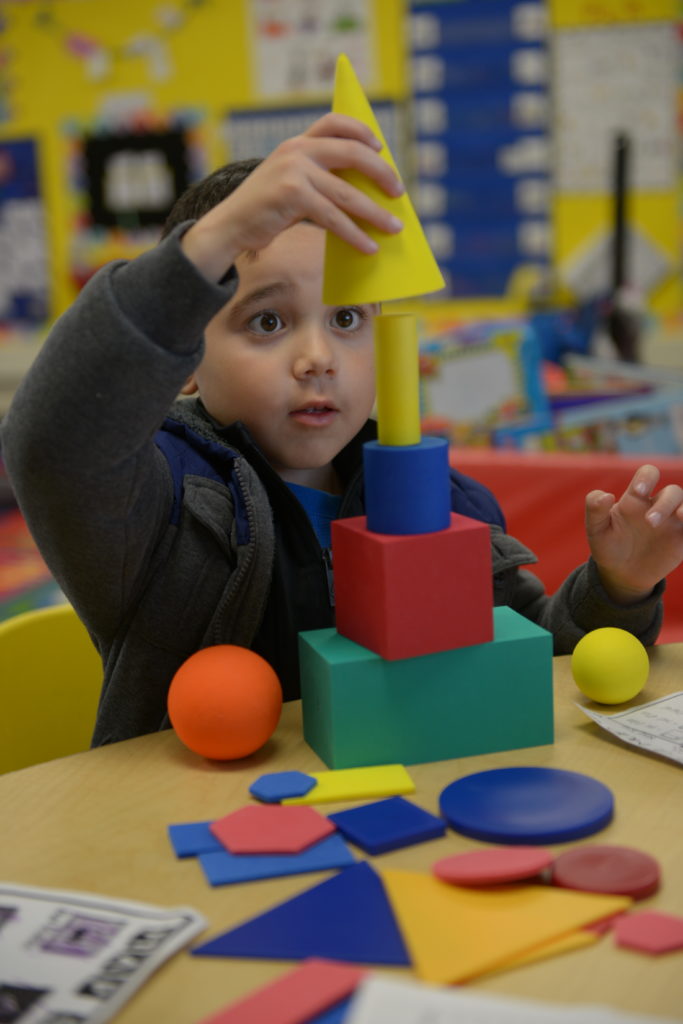Photos by Scott Buschman

to write in a transitional kindergarten class at
Cresson Elementary in Norwalk.
Research shows that participation in high-quality early education programs improves school readiness and contributes to better outcomes in school and beyond. A June 2017 report by the American Institutes for Research found that transitional kindergarten:
- Improves mathematics knowledge and problem-solving skills for students, giving them almost a threemonth advantage over children who did not attend TK.
- Improves students’ literacy skills, putting them nearly six months ahead of their peers who did not attend TK at kindergarten entry.
- Has a persisting impact on all students’ letter and word identification skills at the end of kindergarten.
- Has a strong impact on English learners. Those who attend TK outperform their non-TK peers on the English Language Development Test.
- Has a strong impact on math and literacy skills of low-income students, and math skills of Hispanic students.
Little Kids, Big Impact: Special report on Early
Childhood Education
Research clearly shows that children who attend high-quality preschool, or who enroll in transitional kindergarten, get a jump on learning and social skills. Preschool and TK can also have lasting effects into children’s later years of school and life. With almost $2 billion earmarked for early childhood education (ECE) in Gov. Gavin Newsom’s proposed budget, we look at ECE efforts in the state and how educators and students benefit.

A model preschool program in Lindsay
The rural school district offers free preschool to all, with marked success
Expert Q&A: Preschool’s positive impacts
A Learning Policy Institute researcher and analyst weighs in
Transitional kindergarten gets a gold star
TK gives students foundational skills and confidence
What educators want you to know
Insights from early childhood education teachers, specialists
The Discussion 0 comments Post a Comment